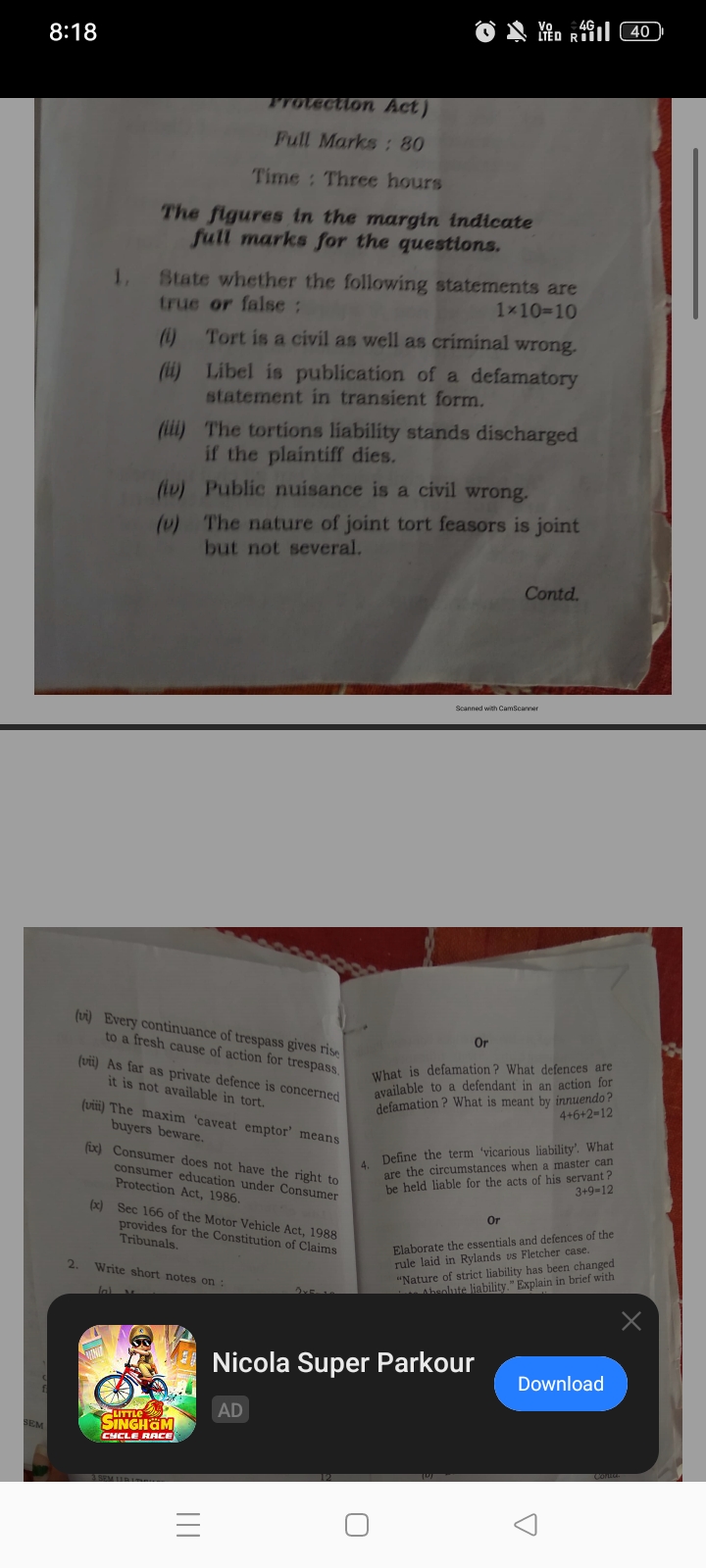State whether the following statements are true or false: (i) Tort is a civil as well as criminal wrong. (ii) Libel is publication of a defamatory statement in transient form. (iii... State whether the following statements are true or false: (i) Tort is a civil as well as criminal wrong. (ii) Libel is publication of a defamatory statement in transient form. (iii) The tortions liability stands discharged if the plaintiff dies. (iv) Public nuisance is a civil wrong. (v) The nature of joint tort feasors is joint but not several. What is defamation? What defences are available to a defendant in an action for defamation? What is meant by inrundo? Define the term ‘vicarious liability’. What are the circumstances when a master can be held liable for the acts of his servant?

Understand the Problem
The question is asking to determine whether statements related to tort law are true or false. It also requires definitions and explanations of legal concepts such as defamation and vicarious liability. This involves applying knowledge of legal principles.
Answer
["False, False, False, True, False"]
["(i) False: Tort is a civil wrong, not a criminal one.","(ii) False: Libel is publication of a defamatory statement in a permanent form.","(iii) False: Tortious liability does not discharge upon the plaintiff's death. It can survive in certain circumstances.","(iv) True: Public nuisance is considered a civil wrong.","(v) False: The nature of joint tortfeasors is joint and several."]
Answer for screen readers
["(i) False: Tort is a civil wrong, not a criminal one.","(ii) False: Libel is publication of a defamatory statement in a permanent form.","(iii) False: Tortious liability does not discharge upon the plaintiff's death. It can survive in certain circumstances.","(iv) True: Public nuisance is considered a civil wrong.","(v) False: The nature of joint tortfeasors is joint and several."]
More Information
Defamation refers to harming someone's reputation by making false statements. Libel is defamation in permanent form (written), while slander is in transient form (spoken).
Tips
A common mistake is confusing libel with slander—remember, libel is written and permanent, while slander is spoken and temporary.
Sources
- Law of Torts - Chapter 19 - Student Manupatra - student.manupatra.com
- Defamation, Libel and Slander - FindLaw - findlaw.com
AI-generated content may contain errors. Please verify critical information